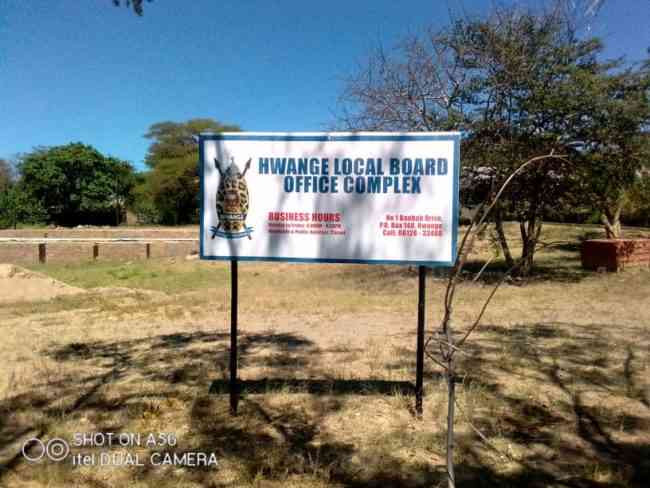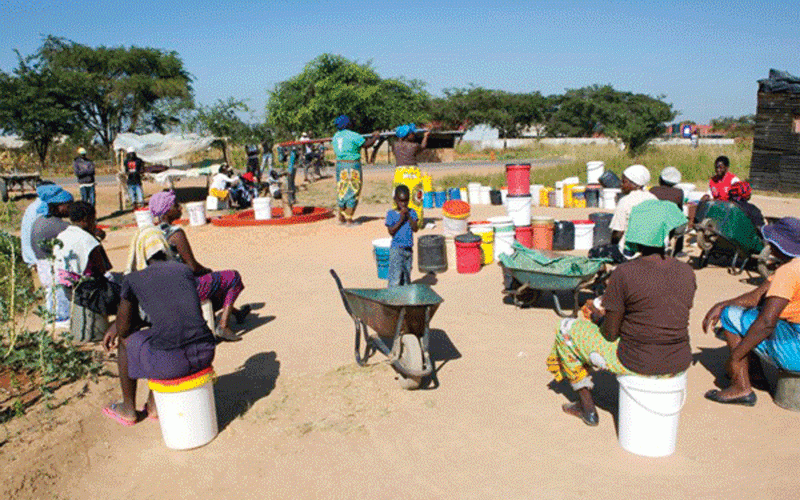
THOUSANDS of villagers living downstream of the Matezva Dam at the boundary of Bikita and Gutu districts face acute water shortages and are appealing for government intervention to access the commodity.
Affected people from Masasire, a resettlement scheme striding Bikita and Gutu districts, Masema and Mungezi Small Scale farms, Zinhata, Vunjere and areas north east of Nyika Growth Point all rely on Mungezi River dam near Bikita Minerals.
The villagers claimed that the Zimbabwe National Water Authority (Zinwa) had not released water into the river for more than six months, and their lives and that of their livestock were under threat.
The Mungezi River downstream of the dam, which is their sole lifeline, is totally dry.
Zinwa corporate communications and marketing executive Marjorie Munyonga, however, said the authority did not intend to drain the dam beyond unsustainable levels.
"The Authority is managing water releases from Matezva dam with the intention of avoiding draining the dam to unsustainably low levels before the onset of the rain season,” Munyonga said.
“To this end the Authority makes periodic releases from the dam for downstream users and communities as well as for the environmental requirements”
Munyonga said Zinwa ‘will in the coming days make releases to help alleviate the situation downstream'.
- Corruption Watch: Get scared, 2023 is coming
- Corruption Watch: Get scared, 2023 is coming
- Letters: Ensuring Africa’s food security through availability of quality seeds
- Is military's involvement in politics compatible with democracy?
Keep Reading
“However, downstream communities are encouraged to engage their relevant Zinwa offices whenever the situation requires that releases are made,” she said.
A visit to Mungezi River by the Southern Eye on Sunday showed that the acute water shortages were making villagers' lives unbearable.
"Ever since the increased activity at Bikita Minerals we have started facing serious water problems.
“The water releases into the river has no longer been regular and we have no water for our animals," said George Morudu from Masema.
He added: “We understand water is also being drawn by another farmer who runs a school west of Matezva Dam, but the situation has subjected thousands of people to serious problems we have never experienced since long ago.”
Matthew Nkomo, a farmer and war veteran of Farm Number 1 Mungezi said a proper investigation to establish where the water was going was required.
"I cannot be quick to say it is Bikita Minerals consuming all the water, but a proper investigation is required. It is true there are serious water shortages and people are affected," said Nkomo.
Downstream of Nkomo's farm, a thriving irrigation project has been discontinued because of the water challenges.
"We need quick intervention or farmers will start losing livestock and wildlife," Nkomo said.
In an unrelated matter, villagers in the same community also reported a serious threat posed by hyenas and other wildlife that have become daring.
Nkomo lost three sheep to hyenas which raided his pens in Bikita during the Heroes holidays.
"They are marauding and even more daring. We have these threats of predators, water and pasture shortages which need attention sooner rather than later,” said Nkomo, who is also a Zanu PF provincial executive member.
The country has been recording increasing cases of human wildlife conflicts in recent months.
The increase in the wildlife population, coupled with a ban on culling following the promulgation of the Convention on Trade in Endangered Species which imposed a global ban on ivory trade, have been blamed for rising incidents of human-wildlife conflicts.
The Zimbabwe National Parks and Wildlife Management Authority has been struggling to compensate victims of wildlife attacks despite the government having approved a Human-Wildlife Conflict Relief Fund to compensate victims of human-wildlife conflict in 2022.









